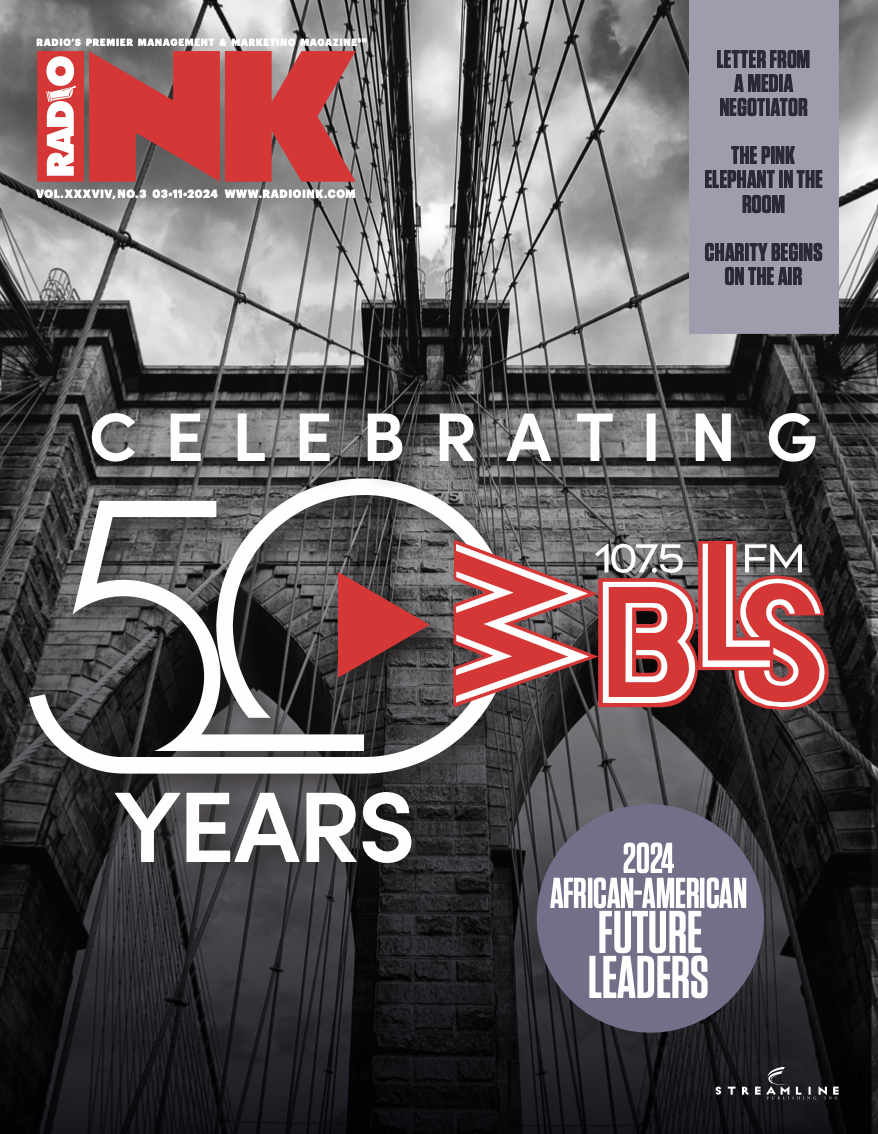
(By Mike McVay) During his recent Netflix special, comedian Chris Rock referenced the famous slap in the face he received from Will Smith. “You know what people say, they say, ‘words hurt,’” Rock said. “Anybody that says words hurt has never been punched in the face.” It should be noted that it was words that prompted the physical violence Rock received. Unwarranted, but real. Which led me to think of the power of words and how we use them.
One of the things that veteran managers and programmers will tell you is that words matter. The greater your position of power, the more weight they carry and the greater the ripples they create. Yet we need thoughtful words to manage, motivate, encourage and inspire those who work for and with us. The best managers, like the best on-air personalities, are great story tellers. They can use an analogy, a quote, or an experience to drive home a point and make it memorable.
A quiver full of “Go To” quotes is an arsenal that has benefited me in my career and I’m sure many of you. Some that I’ve originated. Some that I’ve taken ownership of for my use in select situations. Pablo Picasso said it first “Bad artists copy. Great artists steal.” Malcolm McLaren clarified “Amateurs borrow. Professionals steal.”
These are my “Go To’s” that you can steal:
- We’ve all heard someone say “I’m going to do this, and then this and then make my best move last.” Why wouldn’t you make your best move first?
- The audience is fragile. It isn’t your birthright to have them as listeners. You can easily and accidentally fail their expectations. If that happens … it takes a long time to bring them back. When you go to a restaurant and get a steak that’s served with a hairball on it … when do you go back? Never.
- Anytime you make a change you give the audience a reason to search elsewhere. Be the change for the better or not, you’re encouraging the listener to make a decision. Sometimes they come back. Sometimes they don’t.
- You must interfere with the listeners life habits to make your station memorable. What can you do or say that will distract them from their non-radio focus and have them refocus on your station?
- Great promotion is like life. Expectation, Realization and Memory. Expectation; tell them what you’re going to do or give away. Realization; you do it and you allow the audience to share in the experience. Memory; you relive what happened so that the entire audience can be a part of the conclusion.
- Just because you make a point in a loud voice and sound authoritative doesn’t mean you’re right. It means you have a loud voice. What are the facts or experiences that support your statement?
- Instant Gratification is the most important thing that you can do for your audience. Satisfy them immediately. The more times they hit the button for your station … or ask for it on a Smart Speaker … and they’re satisfied, the more often they will come back to your station.
- Know where you’re going BEFORE turning-on the microphone. If you don’t know where you’re going … then any road will take you there.
Great managers communicate clearly. They’re easy to understand. They explain the objective of a project or directive, in a way that motivates and encourages accomplishment. Most of the successful managers know how to use words.
Mike McVay is President of McVay Media and can be reached at [email protected].








TK: You are NOT an “odd duck.” You are an extremely talented talent. I am always impressed with your personality and the entertainment level you bring to all of your programs.
Much can and should be said about words and you have said many of the right ones, Mike. Although not the central point of this article, you alluded in your ‘” go to points”, of making changes. I wanted to focus my comment on this point. It is natural to want to make changes, a human, often generational trait. Being in this business for almost 6 decades, I’ve, experienced, been affected by and initiated changes, some necessary, and some perceived as necessary. The important thing is to ask yourself, why? Is there a well thought out legitimate reason to make s change, do you really understand why or is it a roll of the dice move or worse is your decision to make a change just because you can. These are changes made for the sake of change. Out of the box thinking is laudable and brilliant when it succeeds but often new is not necessarily better, just different, or occasionally worse. Sometimes it’s better to slightly modify but remain consistent, a subtle but important difference. Consistency is a powerful part of building and holding an audience.
Bill: these thoughts are poignant. Thank YOU for sharing.
Always enjoy your articles Mike! Regarding your point about knowing where you’re going when you crack the mic. Here’s a little secret I will share with you just between us girls. I have never ever done any show prep or written anything down. Show prep is always been part of my psyche, but never part of a script. I know so many personalities who write everything down. I’m not knocking that, but what I’m saying it is the natural stream of consciousness that works for me but may not work for everyone. I’m kind of like the freestyle rapper where it all happens in the moment. I’ve been told by some folks that I respect tremendously that is unusual and it is a gift. All I know is that it works for me. The only time I had a script of any kind was when I worked at WLS in Chicago when it was a big top 40 station and had to read spots Live on the air. I found that to be totally unnatural for me. I learned how to do it by getting the idea of what the client was trying to say in my mind and then just selling it that way. At any rate, my point to you is, I am the odd duck. 🙂